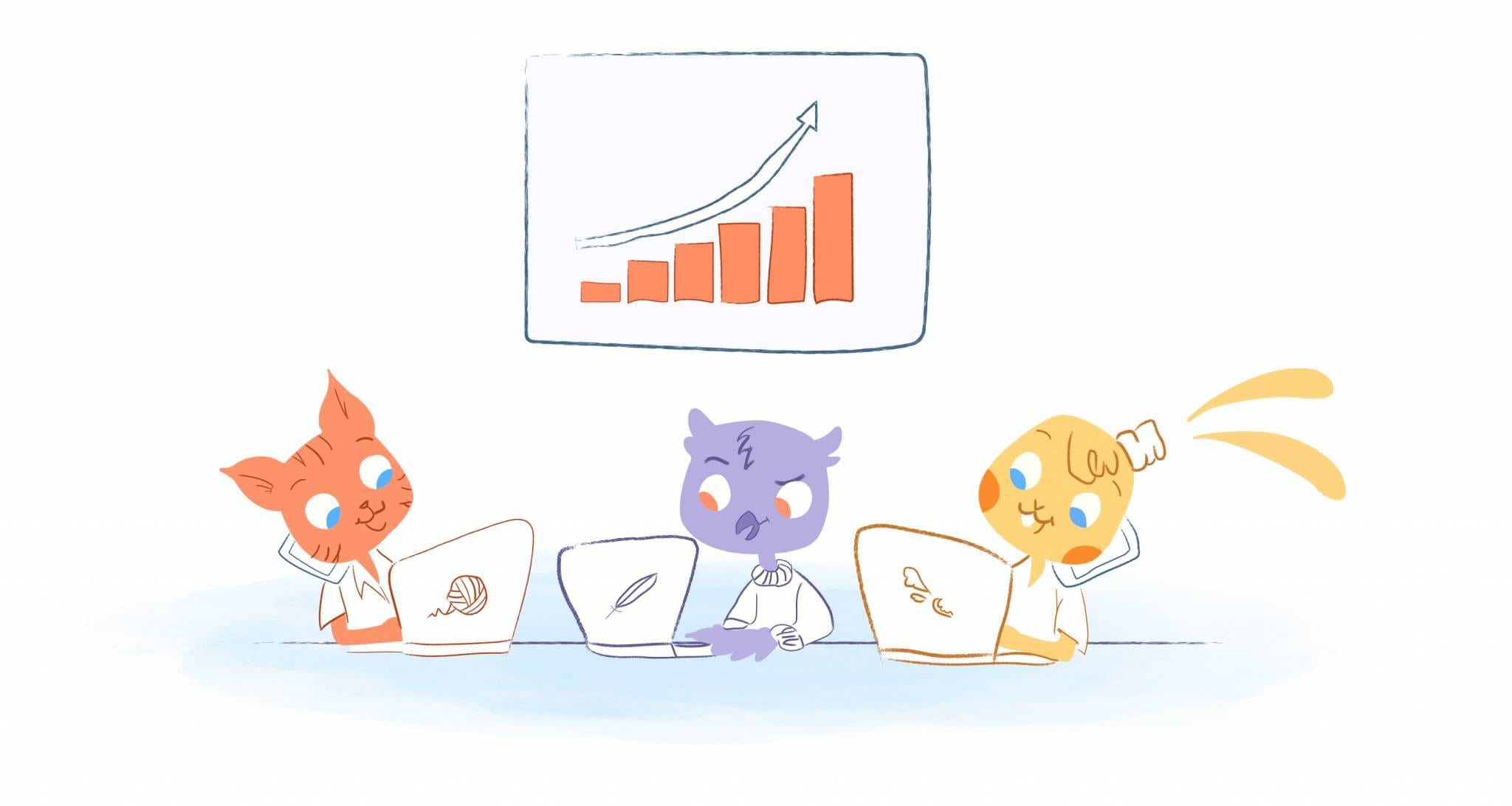

Most people would love to boost their productivity levels. Who wouldn’t like to get more done in less time with less effort? Yet even the most widespread productivity-boosting methods can only do so much.
Take the concept of turning off the notifications on your phone. It can give you a little productivity bump if you’re trying to focus. However, you eventually have to pick up your phone again. At that point, you can wind up getting lost in a myriad of missed texts and messages. While you still may have improved your productivity briefly, you still had to pay for it later.
That being said, you shouldn’t stop silencing your phone or wearing noise-cancellation earbuds in the office. You just need to add some unique elements, ideas, and activities to your productivity enhancement toolkit. That way, you can cross off tons of office to-dos — and maybe give yourself a little extra “me time” in the process.
1. Lower Your Stress Levels
Stress and burnout are at all-time highs, with 55% of Americans saying they face stress daily. When you’re feeling psychologically overwhelmed, you can’t move quickly or effectively. Multitasking is particularly tough if all you can think about are your stressors.
Of course, minimizing your stress won’t happen without effort. Start by identifying the sources of your three biggest stressors. For each one, think of changes you could make to take away their sting. As an example, you may feel stressed out about your health because you’ve gotten out of shape. While you can’t do anything right away to solve this problem, you can work toward improving your fitness. Adding physical activity will help you achieve your strength or cardiovascular goals. It will also give you a mental endorphin boost to tame your overall stress.
Other ways to give stress the heave-ho include engaging in hobbies, spending time with positive people, and prioritizing self-care. As your stress melts away, you’ll find that you can bring more of your energies to producing your best work.
2. Become Financially Confident
Are you a confident money manager? It’s okay to say that you aren’t, or that you’re not sure. Plenty of people simply didn’t have great money role models growing up. As a result, adults of all ages struggle to figure out how to be smarter spenders, savvy savers, and data-driven investors.
How can getting control over your dollars affect your productivity? Your finances will be one less thing on your mind. Let’s say you often become worried toward the end of the month when your bills are due. Like stress, the worry will interfere with your ability to concentrate on churning through your daily agenda items.
One way to reduce the worry might be to get a budget plan with your utility. Or, if you own a home, to invest in solar panels so you can reap immediate financial benefits. You may not even have to pay anything upfront. Solar energy company PosiGen offers a leasing program that allows consumers to enjoy immediate savings. It’s money back in your pocket and less to fret about fiscally.
3. Channel Your Inner Lifelong Learner
You’ve probably gotten accustomed to doing routine tasks a certain way. But what if you’re adding steps that are making your life harder and slowing your progress? Many of us think we’re being efficient when we’re not.
The answer to this problem is for you to seek out hacks, information, and insights. Essentially, you should constantly be trying to learn new ways of doing “old” things. You might just discover that something you’ve always done is surprisingly unproductive.
This productivity tip isn’t limited to professional tasks. It’s just as practical for what you do on your off-hours. Something as simple as learning how to tactically plan a grocery shopping trip could make your life less hectic. Never assume that you have everything down to a science. There’s always something more to fill your noggin.
4. Block Off Your Schedule
Many busy people find it helpful to simply block off periods on their calendars. This is called “time blocking.” These periods can be used for anything from making dinner to hosting a Zoom client meeting. Every block represents something that needs to happen. Once all the blocks are taken, that’s it. There isn’t any room for overbooking.
Getting used to a blocked schedule can be tough, especially if you’re not used to the practice. Nevertheless, you’ll find that you’re not as tempted to take on too much. Yes, you can be flexible in cases of emergencies. But you’ll feel increasingly empowered to say “no” to non-essential requests.
Where does productivity fit into the picture? You will have the time you need already set aside. Unless a project takes a great deal more time than you anticipate, you shouldn’t have problems breezing through your blocked-off responsibilities. Try blocking your calendar for a couple of weeks so you get into the habit.
5. Delegate Whatever You Reasonably Can
Most of us are rushing against the clock. Delegating some of your obligations to others gives you breathing space. These don’t have to be obligations you hate, though. Sometimes, it makes sense to delegate things you’re good at, just to push your productivity to the max.
For instance, you might love to cook but have no time to do your job AND make a meal for tomorrow’s neighborhood picnic. In that situation, delegating the task of picking up pre-made food to your partner is fine. Otherwise, you’ll be forced to overexert yourself, which is a recipe for taking shortcuts and making mistakes.
To be sure, delegation isn’t simple. Another person might be slower than you or do something differently. Nonetheless, you’ll move a to-do off your checklist and onto someone else’s. That’s a good way to open the door to being productive.
6. Give Yourself the Treat of Zzzs
Sleeping is sacrificed far too often by people in our society. Yet adults need to get enough hours of decent rest to function. When you’re sleep-deprived, you lose your ability to concentrate. Your mind wanders and all you crave is a nap. And you’re not doing a favor to your employer. Studies estimate that companies lose about $2,000 annually because of sleep-weary employees.
For the next 10 days, try to go to bed and get up at around the same time. Stop drinking caffeine around lunchtime. About an hour before bedtime, curb your eating and do something to chill out, like reading a book. Stay away from screens. Just allow your body and mind to decompress.
In the morning, get up at a comfortable pace. Don’t read anything for work before you have a chance to just stretch and move a bit. That night, repeat the cycle. If you’re someone who likes to journal, keep track of your experience. Do you find you’re more productive now that you’re getting added zzzs? You might be surprised by how much difference an hour or two of bonus shuteye can have on your performance, stamina, and enthusiasm.
7. Take Your PTO — Please
Far too many Americans are bad at using their PTO. Even professionals who receive generous amounts of PTO sometimes allow it to go unused. This is an error and will have a negative impact on your productivity.
How many people are handing over their PTO? A recent Business Insider piece suggests it’s nearly 50%, at least of those who work in America. A report from Bloomberg agrees. Ironically, the assumption was that people would learn to take their vacation days after dealing with a worldwide pandemic. Guess not.
The bottom line here is that you aren’t a machine. You’re a human being, and humans need opportunities to unwind. Getting away from your ordinary routine gives your brain a chance to recover from your usual fast pace. Plus, you’re likely to be inspired during your time off. Whether you drive to another city to visit relatives or head to the beach for some surfing, you’ll come back recharged and ready for anything.
There’s nothing quite as satisfying as getting into productivity “flow” mode. If it’s been a while since your productivity has peaked, try the aforementioned suggestions. They’ll help you break through your productivity barriers so you can gear up to get more done.
Featured Image Credit: Photo by Cottonbro Studio; Pexels; Thank you.










Deanna Ritchie
Editor-in-Chief at Calendar. Former Editor-in-Chief and writer at Startup Grind. Freelance editor at Entrepreneur.com. Deanna loves to help build startups, and guide them to discover the business value of their online content and social media marketing.